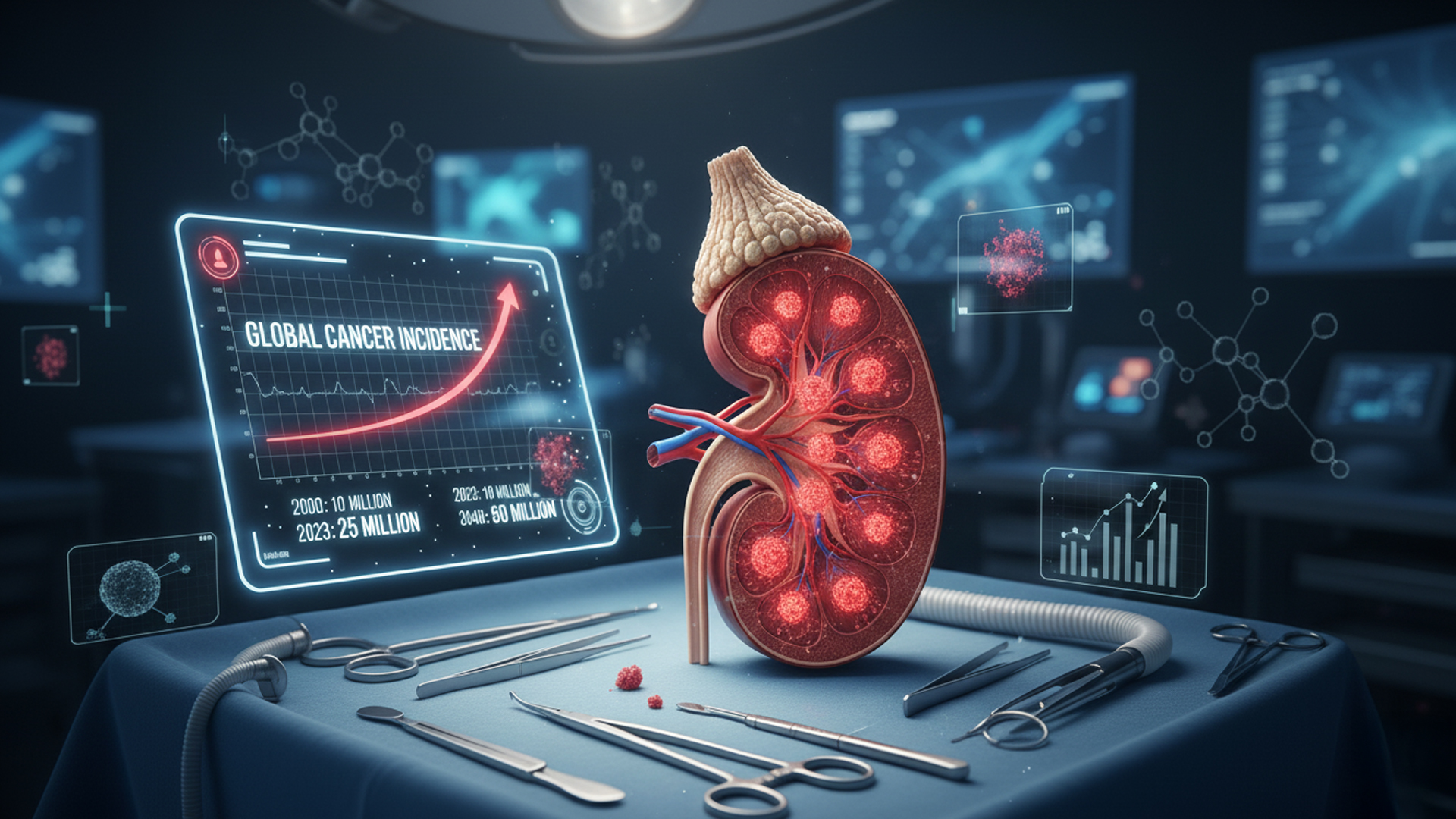Kidney cancer cases are projected to nearly double globally by 2050, according to experts, highlighting a growing health concern that could affect hundreds of thousands of people worldwide. In 2022 alone, an estimated 435,000 new cases and 156,000 deaths were reported, and researchers warn that these numbers are likely to rise sharply in the coming decades. Much of this increase is attributed to lifestyle-related factors such as obesity, smoking, lack of exercise, diabetes, and hypertension—conditions that are largely preventable.
The disease, most commonly diagnosed in individuals between the ages of 65 and 74, tends to develop silently. Many patients remain unaware until the cancer reaches an advanced stage, making early detection particularly important. Men are at a higher risk compared to women, while children are rarely affected. Because of the subtle nature of its onset, kidney cancer is often discovered incidentally during scans or tests for unrelated health issues.
Medical professionals advise paying close attention to warning signs that could indicate the presence of kidney cancer. Visible or microscopic blood in the urine, persistent pain between the ribs and waist, unexplained lumps or swelling in the abdomen or neck, loss of appetite, and ongoing fatigue can all signal underlying problems. Other possible indicators include sudden weight loss, high temperature, excessive sweating, anemia, elevated blood pressure, and high calcium levels. Experts stress that even minor symptoms should prompt consultation with a healthcare professional to rule out serious conditions.
The link between lifestyle and kidney cancer cannot be overstated. Maintaining a healthy weight through a balanced diet and regular physical activity, monitoring and controlling blood pressure and blood sugar levels, and avoiding tobacco use can substantially reduce the risk of developing the disease. Researchers emphasize that adopting these preventive measures not only lowers cancer risk but also contributes to overall health and longevity.
Healthcare providers are increasingly advocating for regular screenings, particularly for individuals over 50 or those with pre-existing conditions such as obesity, diabetes, or hypertension. Early detection dramatically improves treatment options and outcomes, allowing for less invasive interventions and higher survival rates. In addition, public health campaigns aimed at raising awareness about lifestyle risks and symptoms are being promoted to educate communities about preventive strategies.
As the incidence of kidney cancer continues to rise, experts highlight the importance of a proactive approach. Recognizing subtle warning signs, making informed lifestyle choices, and seeking medical advice promptly can collectively help reduce the impact of this growing health challenge. The emphasis is clear: awareness, prevention, and early action are key to combating the silent but significant threat of kidney cancer.
Also Read: Ozempic Set to Launch in India as Obesity Cases Rise






